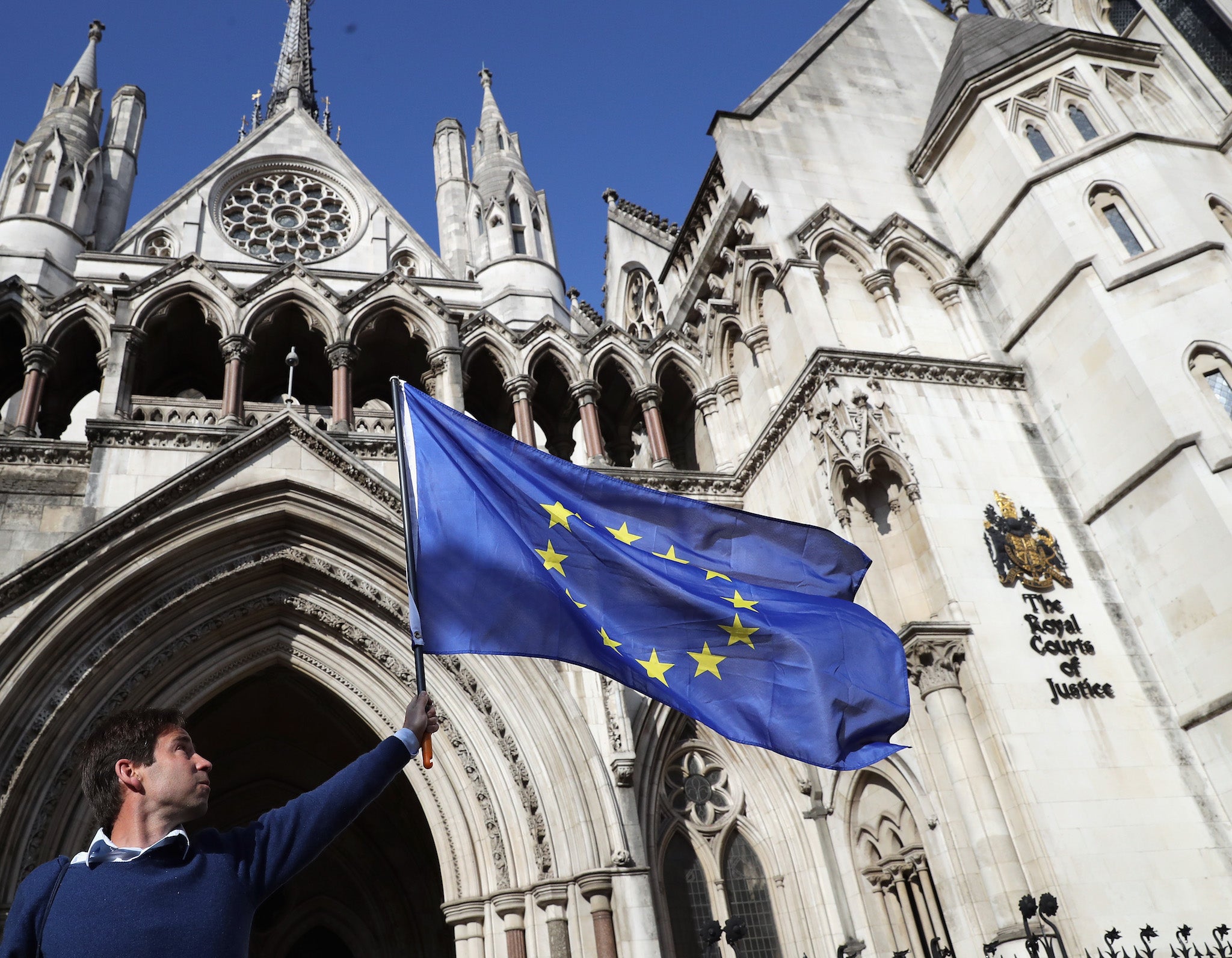What is article 127? Brexit legal challenge over single market puts ‘new Article 50’ in spotlight
Article 127 of the European Economic Area agreement details steps for leaving the single market

Your support helps us to tell the story
From reproductive rights to climate change to Big Tech, The Independent is on the ground when the story is developing. Whether it's investigating the financials of Elon Musk's pro-Trump PAC or producing our latest documentary, 'The A Word', which shines a light on the American women fighting for reproductive rights, we know how important it is to parse out the facts from the messaging.
At such a critical moment in US history, we need reporters on the ground. Your donation allows us to keep sending journalists to speak to both sides of the story.
The Independent is trusted by Americans across the entire political spectrum. And unlike many other quality news outlets, we choose not to lock Americans out of our reporting and analysis with paywalls. We believe quality journalism should be available to everyone, paid for by those who can afford it.
Your support makes all the difference.A second legal challenge is set to further complicate the already labyrinthine Brexit process – and this time, the obscure clause of European law on everyone's lips is Article 127.
Pro-EU campaigners say Britain will have to organise its extraction from the European Economic Area (EEA) – and therefore the single market – separately to its departure from the EU itself.
This is because the UK is currently part of two different agreements with their own exit procedures.
Like Article 50 of the Lisbon treaty, which details the steps a country must take to withdraw from the European Union, Article 127 of the EEA agreement sets out the mechanism for leaving the single market.
The government will argue that EEA membership ends when Britain leaves the EU, which is expected to happen in 2019.
But the legal challenge proposed by think tank British Influence argues that Parliament should be able to vote on whether or not to trigger Article 127, blocking or delaying the possibility of a ‘hard Brexit’.

What does Article 127 actually say?
“Each Contracting Party may withdraw from this Agreement provided it gives at least twelve months' notice in writing to the other Contracting Parties,” states Article 127 of the EEA Agreement.
The trade agreement was first drawn up in 1994 between the EU member states and three countries not in the EU: Iceland, Liechtenstein and Norway.
The EEA Agreement allows EU member states and these three countries access to the single market: the goods, services, money and people which move freely within the EU.
“Immediately after the notification of the intended withdrawal, the other Contracting Parties shall convene a diplomatic conference in order to envisage the necessary modifications to bring to the Agreement,” it says.
Why does the UK leaving the EU not automatically mean leaving the EEA?
The exact legal situation of the UK in relation to these EU agreements is up for interpretation. and is the subject of the legal battle the government is facing with lawyers who argue Britain can only leave the EEA by triggering Article 127.
“There is no provision in the EEA Agreement for UK membership to lapse if the UK withdraws from the EU,” Professor George Yarrow, emeritus professor at Hertford College, Oxford, told the BBC.
“The only exit mechanism specified is Article 127, which would need to be triggered."
To trigger Article 127 might require an act of Parliament – and MPs could then block the move with their votes.
Jonathan Lis, deputy director of British Influence, suggested the UK could even be acting “unlawfully” by taking Britain out of the EEA without seeking “urgent clarification” of the terms of the agreement in the courts.
Could the UK simply stay in the EEA once it has left the EU?
If the UK were able to stay in the EEA, Brexit would be hardly noticeable, as the country would still be bound to the single market and free movement of people.
But Kenneth Armstrong, Professor of European Law at the University of Cambridge, told The Independent it would be very difficult for the UK to retain access to the single market once it had left the EU.
He said even if the think tank's litigation were correct, and the UK needs to formally withdraw from the agreement, "the fact that the UK was at that point outside of the EU would mean that the agreement would only be enforceable for very limited purposes".
"The centrepoint of their argument is that it keeps the UK in the single market, and that’s just not going to happen," he said.
"The UK did not sign and ratify [customs and the EU single market rule book] because it was not within its power and competences; it was in the EU’s power and competeneces."
What about Switzerland?
Switzerland, along with Iceland, Norway and Liechtinstein, is a member of the European Free Trade Association (EFTA), but it is not part of the EEA agreement.
Instead it has more than 100 of its own bilateral trade agreements with the EU, managed by a complex structure of more than 15 joint committees.
Britain may have to adopt a Swiss model when it leave the Union and talks are already said to have taken place between Swiss trade diplomats and Whitehall officials to share notes on matters of trade and migration.
For the last two years, Switzerland has been in talks with Brussels to limit free movement to the country from the EU, but has been told it would lose access to the single market if it went ahead with its plans to restrict free movement.
Join our commenting forum
Join thought-provoking conversations, follow other Independent readers and see their replies
Comments